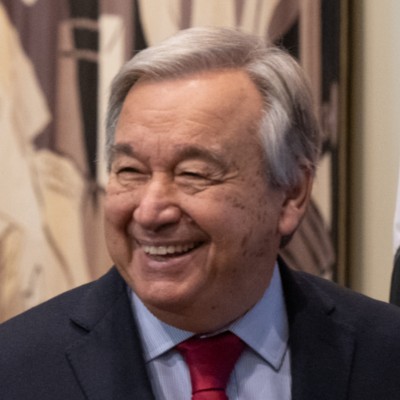In a letter addressed to the President of the Security Council, His Excellency Mr. José Javier de la Gasca Lopez Domínguez, UN Secretary-General António Guterres expressed deep concern over the escalating crisis in Gaza and Israel.
Utilising Article 99 of the United Nations Charter, Guterres emphasised that the ongoing hostilities, now surpassing eight weeks, pose a severe threat to international peace and security.
More than eight weeks of hostilities in Gaza and Israel have created appalling human suffering, physical destruction, and collective trauma across Israel and the Occupied Palestinian Territory.
More than 1,200 people were brutally killed, including 33 children, and thousands were injured in the abhorrent acts of terror by Hamas and other Palestinian armed groups on 7 October 2023, which I have repeatedly condemned. Some 250 people were abducted, including 34 children, more than 130 of whom are still captive. They must be immediately and unconditionally released. Accounts of sexual violence during the attacks are appalling.
The Secretary-General highlighted the devastating impact of the conflict, reporting over 1,200 casualties, including 33 children, and thousands of injuries resulting from abhorrent acts of terror by Hamas and other Palestinian armed groups on October 7, 2023. Guterres condemned these acts and called for the immediate and unconditional release of abducted individuals, including children.
The health care system in Gaza is collapsing. Hospitals have turned into battlegrounds. Only 14 hospitals out of 36 facilities are even partially functional. The two major hospitals in south Gaza are operating at three times their bed capacity and are running out of basic supplies and fuel. They are also sheltering thousands of displaced persons. Under these circumstances, more people will die untreated in the coming days and weeks.
Throughout Gaza, civilians are facing perilous conditions, with over 15,000 reported casualties, more than 40 percent of whom are children. The destruction of homes has left over 80 percent of the population, approximately 2.2 million people, forcibly displaced, creating overcrowded and unsanitary conditions in UNRWA facilities. The collapsing healthcare system, decimated by constant bombardment and a lack of essential supplies, further exacerbates the humanitarian crisis.
Guterres warned of an imminent breakdown in public order, predicting dire consequences such as epidemic diseases and increased pressure for mass displacement into neighbouring countries. The Secretary-General underscored the Security Council’s Resolution 2712 (2023), which called for the scaling up of humanitarian supplies to meet the needs of the civilian population, especially children.
However, Guterres pointed out that current conditions are impeding meaningful humanitarian operations. The United Nations and its partners are grappling with supply shortages, fuel scarcity, interrupted communications, and growing insecurity. The severe risk of
The current conditions are making it impossible for meaningful humanitarian operations to be conducted. We are, nevertheless, preparing options for monitoring the implementation of the resolution, even if we recognize that in the present circumstances, that is untenable.
While delivery of supplies through Rafah continues, quantities are
insufficient and have dropped since the pause came to an end. We are simply unable to reach those in need inside Gaza. The capacity of the United Nations and its humanitarian partners has been decimated by supply shortages, lack of fuel, interrupted communications, and growing insecurity. Humanitarian personnel have joined the vast majority of Gazan civilians in evacuating to south Gaza ahead of advancing military operations. At least 130 UNRWA colleagues have been killed, many with their families.
A collapse of the humanitarian system prompted Guterres to appeal urgently to the international community to prevent further escalation and end the crisis. He called on the Security Council to use its influence to avert a humanitarian catastrophe and reiterated his plea for a humanitarian ceasefire.
The Secretary-General emphasised that a ceasefire is crucial to sparing the civilian population from greater harm. With a humanitarian ceasefire in place, the means of survival can be restored, and humanitarian assistance can be delivered safely and promptly across the Gaza Strip.
As the international community grapples with the urgency of the situation, the Secretary-General’s plea serves as a stark reminder of the critical need for immediate action to prevent further suffering and loss of life in the region.



